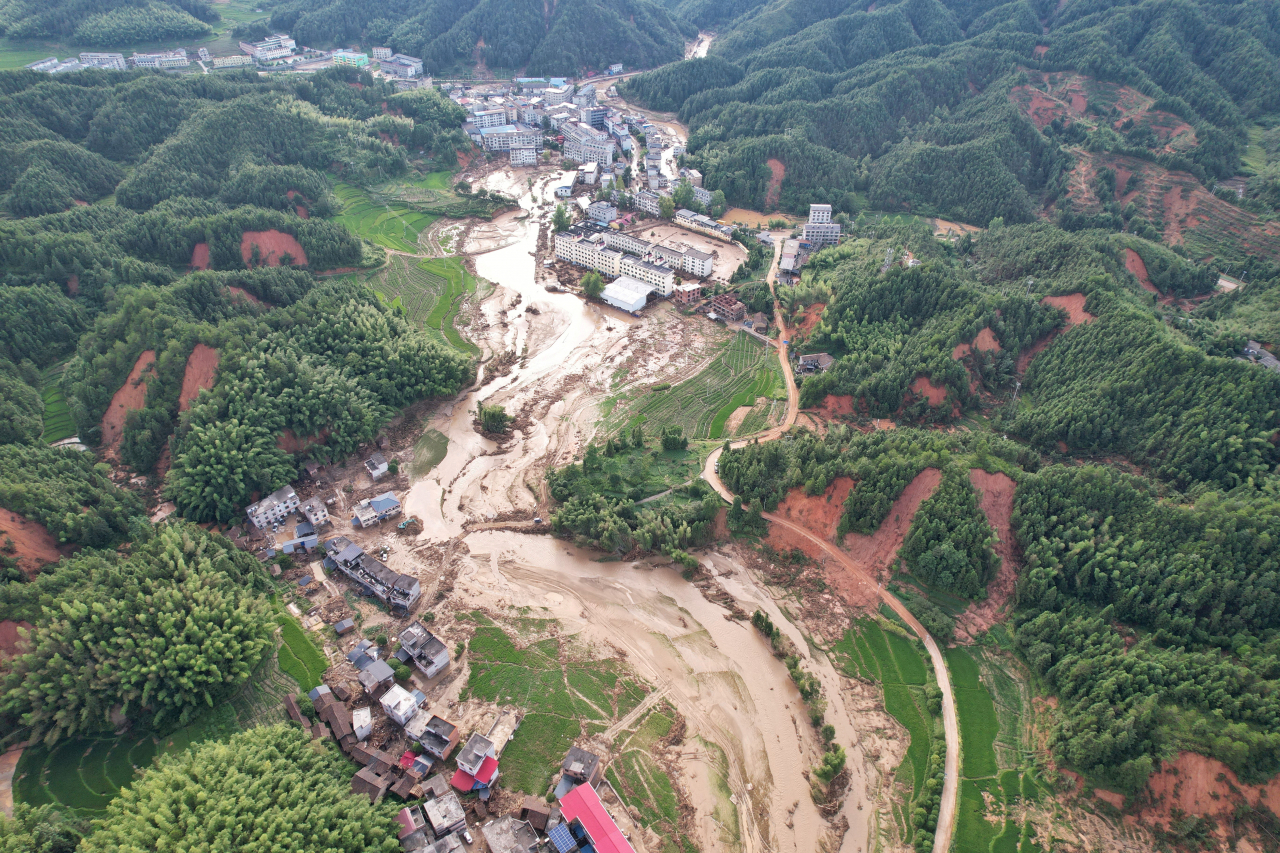
 > World > World News
> World > World News
 |
| A drone view shows the aftermath of a landslide in Zhoumensi town after heavy rainfall brought by remnants of Typhoon Gaemi in Zixing, Hunan province, China on July 31. This photo is unrelated to the story. (Reuters-Yonhap) |
Landslides in southwest China on Saturday destroyed homes and caused a highway bridge to collapse, killing at least two people and leaving around 17 others missing, authorities said.
State broadcaster CCTV said "local mountain torrents and landslides" swept away part of Ridi village in Garze Tibetan Autonomous Prefecture, Sichuan province.
The disasters killed two people and left 12 missing, CCTV reported, adding that "the disaster situation is undergoing further verification."
In a separate statement, Garze's local government said "a sudden mountain torrent and landslide" caused a highway tunnel bridge to collapse along the highway between Kangding and Luding.
As of 11:00 a.m., officials had confirmed that at least three vehicles had plunged off the road, carrying six people of whom "one person has been rescued and five are missing," the government said in a social media post.
It added that "at present, multiple rescue forces have arrived at the scene to carry out their work."
It was not immediately clear whether the two incidents were related.
Traffic was suspended along stretches of two highways in Garze, the government said in a further statement.
Garze lies in a mountainous area at the foothills of the Himalayas and has a large Tibetan population.
China has seen a string of natural disasters this summer, many linked to extreme weather.
State media reported Friday that the death toll from another highway bridge collapse in northern Shaanxi province last month had risen from 12 to 38, with 24 still missing. In May, a highway in southern China collapsed after days of rain, leaving 48 dead.
China is the world's largest emitter of the greenhouse gases that scientists say drive climate change and make extreme weather more intense. (AFP)








